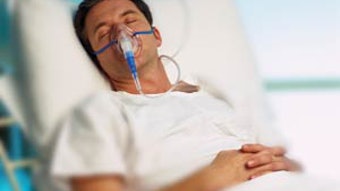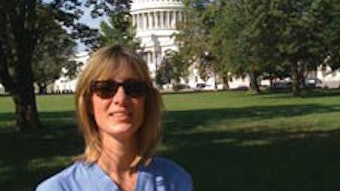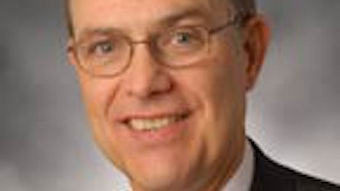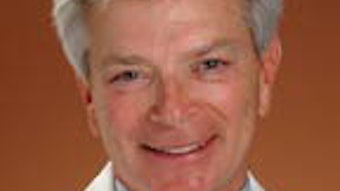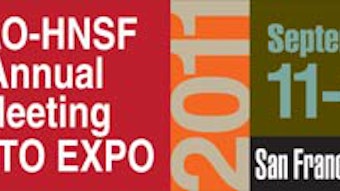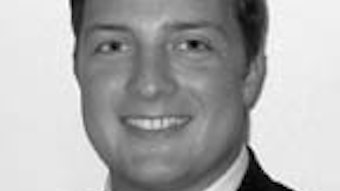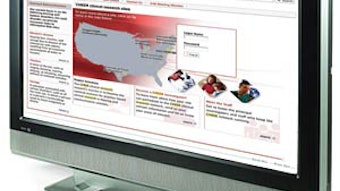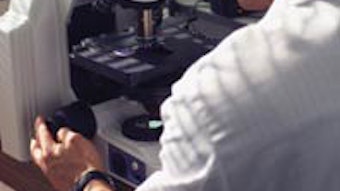Expanding Access for New York’s Hearing-Impaired Patients
Gavin Setzen, MD President, NY State Society of Otolaryngology—Head & Neck Surgery Immediate Past-Chair, Board of Governors, AAO-HNS New York state law currently prohibits physicians who conduct hearing loss evaluations from selling hearing aids for a profit. This includes selling them for a reasonable price that would cover necessary costs and expenses associated with providing this important treatment option to the estimated 1.85 million New Yorkers who have hearing loss. The New York State Society of Otolaryngology—Head & Neck Surgery (NYSSO) has been actively working during the past several years to change this antiquated law. NYSSO engaged all stakeholders and formed the Patient Access to Hearing Aids (PAHA) Coalition to seek adoption of legislation that would strike this outdated law. The PAHA Coalition includes the AAO-HNS and NYSSO, along with the Medical Society of the State of New York (MSSNY), the American Medical Association (AMA), the American Osteopathic Association, the American Osteopathic Colleges of Ophthalmology and Otolaryngology—Head and Neck Surgery, and the American Otological Society, among others. Opponents to our Coalition efforts maintain that physicians should not “benefit financially from the sale of products that they order or prescribe.” However, audiologists and hearing aid dispensers are able to provide this service without limitations. These “profits” help cover the cost of overhead expenses, testing and equipment, follow-up appointments, and making instrument adjustments or addressing individual patient problems. These expenses are typically bundled into the consumer’s cost of the hearing aid. Without being able to charge for such reasonable and necessary expenses, and recovering only the wholesale price of the hearing aid, physicians cannot afford to offer hearing aids, despite hearing aid dispensing being within the scope of practice of otolaryngology—head and neck surgeons and of audiologists who work with them. In reality, the current system is advantageous for independent audiologists and hearing instrument specialists as the law essentially creates a mandatory referral system. The July 2009 issue of Consumer Reports, “Hear Well in a Noisy World: Hearing Aids, Hearing Protection & More,” reinforced what otolaryngology has been asserting all along: The best provider for hearing aids is a medical office headed by an ENT physician, with an audiologist on staff to fit and dispense hearing aids. There are several reasons cited for this recommendation, including higher marks than other providers from patients for thoroughness in evaluating hearing loss, and the ability of the otolaryngologist to rule out medical conditions and remove cerumen prior to the hearing test. Essentially, when otolaryngologists and audiologists work together, this model ensures that all patients get the right care from the right professional. We believe patients are ill-served by the current New York law, which is anti-consumer and monopolistic. For the patient, convenience and continuity of care are negatively impacted, possibly preventing certain individuals from taking that extra step to obtain a hearing aid, especially those who are older or are already hesitant due to stigma, cost, or fear. PAHA Lobby Day The PAHA Lobby Day activities, held March 15, 2011, were coordinated by our talented AAO-HNS Government Affairs team in conjunction with MSSNY – an excellent collaborative relationship that has strengthened over the last few years. One goal of the PAHA Lobby Day was to educate legislators on the facts surrounding this critical issue and to rebuff the incorrect assertions being made by organized audiology and the hearing aid dealers. Another goal was to secure additional sponsors for Assembly Bill 1739 and Senate Bills 3788 and 5164, and to garner additional support from other key legislators. Involvement by many otolaryngologists in New York with the PAHA Coalition effort has included writing letters to legislators, obtaining support from patients and colleagues (including audiologists), meeting with legislators (prior to Lobby Day), and ultimately attending the PAHA Lobby Day at the State Capitol in Albany, N.Y. In addition to 18 otolaryngologist attendees, we had two audiologists and Rebecca J. Patchin, MD, a member of the AMA Board of Trustees, flown in from California by the AMA. There were also four members of the MSSNY Legislative & Regulatory Affairs department lobbying on our behalf. A briefing was held for all attendees at the start of the PAHA Lobby Day in which all of the materials were reviewed and a strategy for the meetings was discussed. Overall, there were 22 legislative meetings with members of the Assembly Higher Education and Senate Consumer Protection Committees. Packages were provided for each legislator that included various letters of support, organizational position statements, “talking points,” and the Consumer Reports article. Afterward, a debriefing session was held, action points were developed, and PAHA Coalition conference calls were scheduled so the lobbying effort could continue. In addition, letters were sent to all legislators thanking them, briefly summarizing the key points, and asking them to co-sponsor legislation (A. 1739/S. 5164 and S. 3788.) The PAHA Coalition activities did not end there. We continued to press the issue through the spring with ongoing advocacy efforts, including a press conference and political fundraising events. In addition, our support for A. 1739/S. 5164 and S. 3788 was included in the advocacy materials for the New York Coalition of Specialty Care Physicians’ Lobby Day in Albany on May 10, 2011. While ultimately we were unable to secure passage of the legislation in 2011, we will continue to push for fair laws that ensure patients have access to needed hearing health services. This must remain a priority for all otolaryngologist—head and neck surgeons, regardless of subspecialty. For more information on the PAHA Coalition and our legislative efforts, visit www.entnet.org/Practice/members/PAHA.cfm.
President, NY State Society of Otolaryngology—Head & Neck Surgery
Immediate Past-Chair, Board of Governors, AAO-HNS
New York state law currently prohibits physicians who conduct hearing loss evaluations from selling hearing aids for a profit. This includes selling them for a reasonable price that would cover necessary costs and expenses associated with providing this important treatment option to the estimated 1.85 million New Yorkers who have hearing loss.
The New York State Society of Otolaryngology—Head & Neck Surgery (NYSSO) has been actively working during the past several years to change this antiquated law. NYSSO engaged all stakeholders and formed the Patient Access to Hearing Aids (PAHA) Coalition to seek adoption of legislation that would strike this outdated law. The PAHA Coalition includes the AAO-HNS and NYSSO, along with the Medical Society of the State of New York (MSSNY), the American Medical Association (AMA), the American Osteopathic Association, the American Osteopathic Colleges of Ophthalmology and Otolaryngology—Head and Neck Surgery, and the American Otological Society, among others.
Opponents to our Coalition efforts maintain that physicians should not “benefit financially from the sale of products that they order or prescribe.” However, audiologists and hearing aid dispensers are able to provide this service without limitations. These “profits” help cover the cost of overhead expenses, testing and equipment, follow-up appointments, and making instrument adjustments or addressing individual patient problems. These expenses are typically bundled into the consumer’s cost of the hearing aid.
Without being able to charge for such reasonable and necessary expenses, and recovering only the wholesale price of the hearing aid, physicians cannot afford to offer hearing aids, despite hearing aid dispensing being within the scope of practice of otolaryngology—head and neck surgeons and of audiologists who work with them. In reality, the current system is advantageous for independent audiologists and hearing instrument specialists as the law essentially creates a mandatory referral system.
The July 2009 issue of Consumer Reports, “Hear Well in a Noisy World: Hearing Aids, Hearing Protection & More,” reinforced what otolaryngology has been asserting all along: The best provider for hearing aids is a medical office headed by an ENT physician, with an audiologist on staff to fit and dispense hearing aids. There are several reasons cited for this recommendation, including higher marks than other providers from patients for thoroughness in evaluating hearing loss, and the ability of the otolaryngologist to rule out medical conditions and remove cerumen prior to the hearing test. Essentially, when otolaryngologists and audiologists work together, this model ensures that all patients get the right care from the right professional.
We believe patients are ill-served by the current New York law, which is anti-consumer and monopolistic. For the patient, convenience and continuity of care are negatively impacted, possibly preventing certain individuals from taking that extra step to obtain a hearing aid, especially those who are older or are already hesitant due to stigma, cost, or fear.
PAHA Lobby Day
The PAHA Lobby Day activities, held March 15, 2011, were coordinated by our talented AAO-HNS Government Affairs team in conjunction with MSSNY – an excellent collaborative relationship that has strengthened over the last few years.
One goal of the PAHA Lobby Day was to educate legislators on the facts surrounding this critical issue and to rebuff the incorrect assertions being made by organized audiology and the hearing aid dealers. Another goal was to secure additional sponsors for Assembly Bill 1739 and Senate Bills 3788 and 5164, and to garner additional support from other key legislators.
Involvement by many otolaryngologists in New York with the PAHA Coalition effort has included writing letters to legislators, obtaining support from patients and colleagues (including audiologists), meeting with legislators (prior to Lobby Day), and ultimately attending the PAHA Lobby Day at the State Capitol in Albany, N.Y. In addition to 18 otolaryngologist attendees, we had two audiologists and Rebecca J. Patchin, MD, a member of the AMA Board of Trustees, flown in from California by the AMA. There were also four members of the MSSNY Legislative & Regulatory Affairs department lobbying on our behalf.
A briefing was held for all attendees at the start of the PAHA Lobby Day in which all of the materials were reviewed and a strategy for the meetings was discussed. Overall, there were 22 legislative meetings with members of the Assembly Higher Education and Senate Consumer Protection Committees. Packages were provided for each legislator that included various letters of support, organizational position statements, “talking points,” and the Consumer Reports article.
Afterward, a debriefing session was held, action points were developed, and PAHA Coalition conference calls were scheduled so the lobbying effort could continue. In addition, letters were sent to all legislators thanking them, briefly summarizing the key points, and asking them to co-sponsor legislation (A. 1739/S. 5164 and S. 3788.)
The PAHA Coalition activities did not end there. We continued to press the issue through the spring with ongoing advocacy efforts, including a press conference and political fundraising events. In addition, our support for A. 1739/S. 5164 and S. 3788 was included in the advocacy materials for the New York Coalition of Specialty Care Physicians’ Lobby Day in Albany on May 10, 2011.
While ultimately we were unable to secure passage of the legislation in 2011, we will continue to push for fair laws that ensure patients have access to needed hearing health services. This must remain a priority for all otolaryngologist—head and neck surgeons, regardless of subspecialty.
For more information on the PAHA Coalition and our legislative efforts, visit www.entnet.org/Practice/members/PAHA.cfm.
